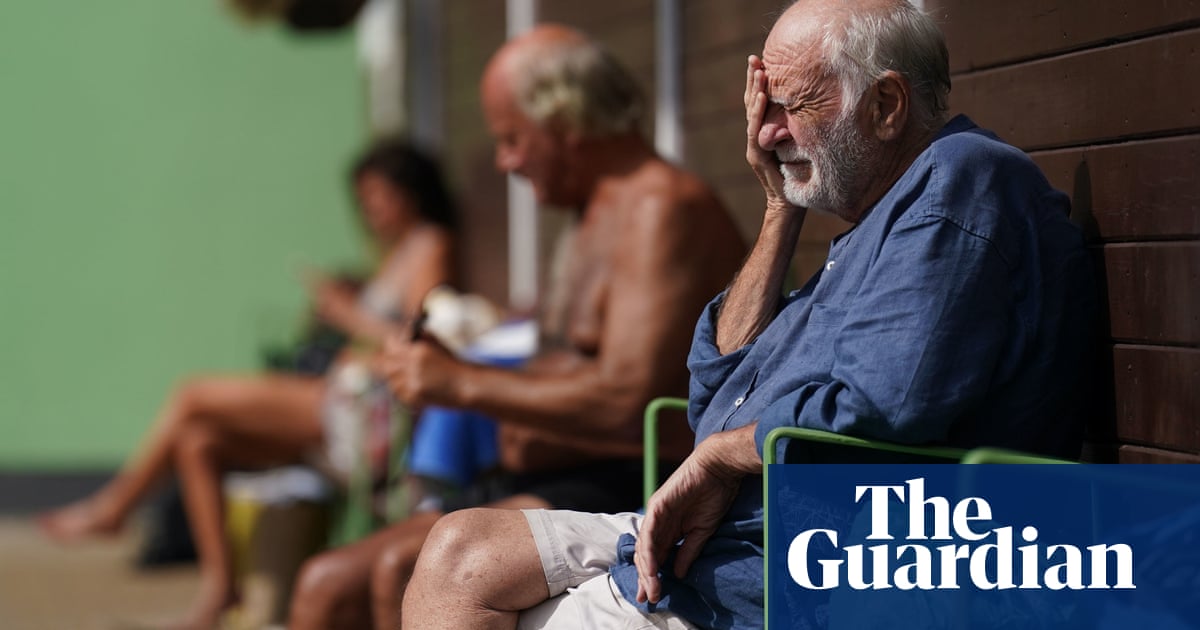
Public health officials have stressed it is vital people stay at home amid fears a combination of sunny weather and lockdown fatigue could result in government guidance being ignored this weekend.
With temperatures forecast to reach 20C (68F) in some parts of the UK from Saturday, there are concerns roads and parks could become busier, with some police forces braced to deter day-trippers from beauty spots.
“Whatever the weather, we all have a shared responsibility to protect those around us, and the single most important action we can all take in fighting coronavirus is to stay at home in order to protect the NHS and save lives,” said Prof Jonathan Van Tam, the deputy chief medical officer for England.
Downing Street said it “cannot stress the vital importance of staying at home wherever possible” amid worries that an increase in car use could be an early sign of the lockdown breaking down.
Boris Johnson highlighted concerns, tweeting: “Yesterday’s data showed more people were using transport than in previous days. Please do not leave your home unless absolutely necessary. It really will save lives.”
Ten days into the formal lockdown, Andy Slattery, assistant chief constable of Cumbria, said he was concerned that “boredom and frustration” were setting in and people were getting back into their cars, ignoring guidance to exercise locally.
Though the number of visitors to the Lake District had dropped, police were still having to tell day-trippers to go home. “We’ve stopped and spoken to day-trippers from the north-east and the north-west thinking it’s still OK to come to the Lake District – it isn’t.”
He added: “I am worried that people [who] had decided to stay at home, now a week, 10 days in, may be thinking they’ll just get in the car and go here or there.”
In London messages will be pumped out on social media from Friday urging people to resist the capital’s forecast mini-heatwave and stay inside.
Police forces across the country were assessing intelligence and briefing officers on patrol about making sure there was no slippage in the lockdown at the weekend. One senior officer told the Guardian the bigger concern was Easter weekend, when forces were considering boosting patrols dedicated to policing the lockdown.
There remains a nagging concern among police about how long the public will observe the draconian restrictions. The concern is that over time the level of compliance will dip.
Prof Ivo Vlaev, a behavioural change scientist at Warwick Business School and a government adviser, said he did not expect violations of the guidance on the basis of what he knew, and from previous research.
“What we know is that with compelling narrative and reasons, people are capable of maintaining remarkable solidarity over long periods of times of national crisis, especially when the narrative is a collective narrative. And, in fact, we know from evidence that panic is much less likely behaviour. In fact more likely behaviours are related to cooperation and altruism and solidarity.”
Research on the effectiveness of school closures in previous epidemics shows children, especially teenagers, continued to leave home and socialise despite public health recommendations.
A team from King’s College London reviewed 19 studies of school closures from different countries around the world during the 2009 H1N1 swine flu pandemic and other influenza-like outbreaks. Schools then were closed for a far shorter time than is likely during the current crisis, from one day to a maximum of two weeks.
The research found that though children’s interactions with others reduced significantly during the closure, social contact with others outside the home remained common.
Some of the studies featured adolescents leaving their homes to meet friends and go to parties and fast food restaurants. One UK study of school closures during the H1N1 outbreak found that 98% of children left their homes during the closure.
Commenting on the study, Andrea Danese, a professor of child and adolescent psychiatry at the Institute of Psychiatry, Psychology and Neuroscience at King’s, said: “This timely review suggests that school closure can be effective to reduce social interaction and, thus, the spread of infection. However, the review also clearly suggests that, for such top-down measures to be effective, children and families cannot simply be seen as passive recipients of government decisions.”












